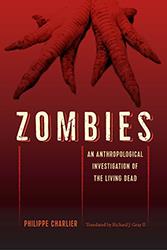Haitians in New York City
Transnationalism and Hometown Associations
Francois Pierre-Louis
Hardcover: $55.00
"An indispensable analysis of how the new Haitian immigrants have become empowered participants in building political communities and alliances in both New York and Haiti . . . solidly researched . . . particularly important is [his] analysis of Haitians’ changing strategies of self-identity and the range of their commitment to other Caribbean associations and African American political organizations."--Irving Leonard Markovitz, Queens College and the Graduate Center of CUNY
"A most valuable contribution to the study of transnationalism and more specifically the Haitian immigrants’ experience in the United States."--Robert Fatton Jr., Julia A. Cooper Professor of Politics, University of Virginia
Pierre-Louis offers a new perspective on the strategies Haitian immigrants used to adapt to life in the United States and to shield themselves from the harsh discrimination they faced as a minority. Struggling to assimilate while continuing to maintain ties to their homeland, they transformed themselves from Third World exiles into transnational citizens.
For the laborers and political refugees who left Haiti in the last half-century, class had always been more important than skin color as a barometer of social standing. To cope with the racial and cultural tensions they encountered, they established structures that allowed them to live a dual life and to preserve an ethnic identity distinct from that of African Americans. The groups they formed--"hometown associations"--emphasized their entrepreneurial spirit, cultural and linguistic heritage, and Haiti's glorious past as the first black republic. At the same time the associations offered them practical training, technical assistance, and networking opportunities.
While the immigrants created a political identity in New York City, they also learned to access public resources and compete successfully with other ethnic and minority groups for recognition. In fact, Pierre-Louis shows, the hometown associations encouraged their desire to participate in New York City politics, a finding that turns much of the current literature on transnational politics on its head. The book also presents a background of Haitian migration into the United States, the Haitian government’s contribution to that diaspora in the 1960s, and the history of such Haitian American neighborhoods as the West Side of Manhattan and the East Flatbush area in Brooklyn.
Francois Pierre-Louis Jr. is assistant professor of political science at Queens College, City University of New York.
No Sample Chapter Available
…Highly recommended.
--Choice
…the most compelling and significant contribution of this book: the demonstration of Haitian immigrants' enhanced influence in both national contexts and the ways that these transnational involvements are interrelated.
--Latin American Research Review
"An excellent case study into the dual orientation of diaspora politics."
--The Journal of the Royal Anthropological Institute











